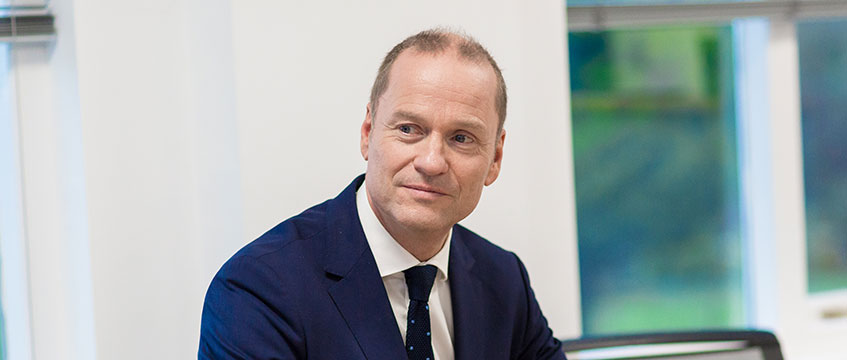Tim Roberts, like many company leaders, finds himself talking about climate change and the challenges of making a business net zero carbon more and more. That’s as it should be, says the chief executive of developer and construction company Henry Boot – and he wants more people to join the conversation.
“We have to talk to our customers, shareholders – even competitors. I’m happy to talk to anybody about what we’re doing and I’m happy to learn from anybody,” Roberts says as Henry Boot launches its net zero carbon framework, a map via which the business hopes to become achieve net zero carbon for all direct greenhouse gas emissions by 2030.
“This isn’t a Henry Boot issue and it’s definitely not going to be solved by Henry Boot alone. We’ve all got to work together to try to reduce carbon emissions and to make the planet a better place.”
Investors and clients will expect little less, Roberts says. “Our stakeholders, our customers, a lot of the public sector we work with, will want us to have a clear and ambitious way of dealing with it.”
The framework uses Henry Boot’s 2019 emissions as a baseline, with a first phase of delivering short-term reductions between now and 2025.
Roberts notes that the company is not beginning from a standing start – its scope one and two emissions, direct and indirect, have already been reduced by a quarter since 2013. But a lack of data has always made benchmarking a trickier task than it should be, he adds.
“If you want to know how the industry is doing, you trawl through a lot of people’s sustainability reports and then you try to create some form of standard measure of commentary on it, and then you judge yourself against that. That’s a long-winded exercise.”
Now is the time for “greater action and increased ambition”, he says. Near-term steps include an energy and resource audit of all controlled sites; a fleet renewal programme that will see all vehicles be electric by 2030; a sustainable HGV renewal programme; and a generator decarbonisation programme to replace all generators with sustainable alternatives.
It also includes an agile working programme to reduce business travel by 20%. Roberts says that seems “really plausible now” in a way it might not have before the Covid-19 pandemic. He expects to be carrying out many more of his meetings over Zoom now than in person, and is encouraging fellow directors and colleagues to join him in declining a company car.
As a chief executive, Roberts comes to the climate change challenge convinced that doing better for the world means doing better as a business too. As a leader, he sees no choice but to follow that instinct.
“On a personal level, I get that we’ve all been taking economic benefit from producing and consuming things and we haven’t been meeting the true cost – the environmental cost,” he says. “As a country, as a world, we’ve got to start recognising that. One way we can recognise that at Henry Boot is say we’re going to be open about the way we’re going to deal with our emissions. People can then hold us to account.”
To send feedback, e-mail tim.burke@eg.co.uk or tweet @_tim_burke or @EGPropertyNews











